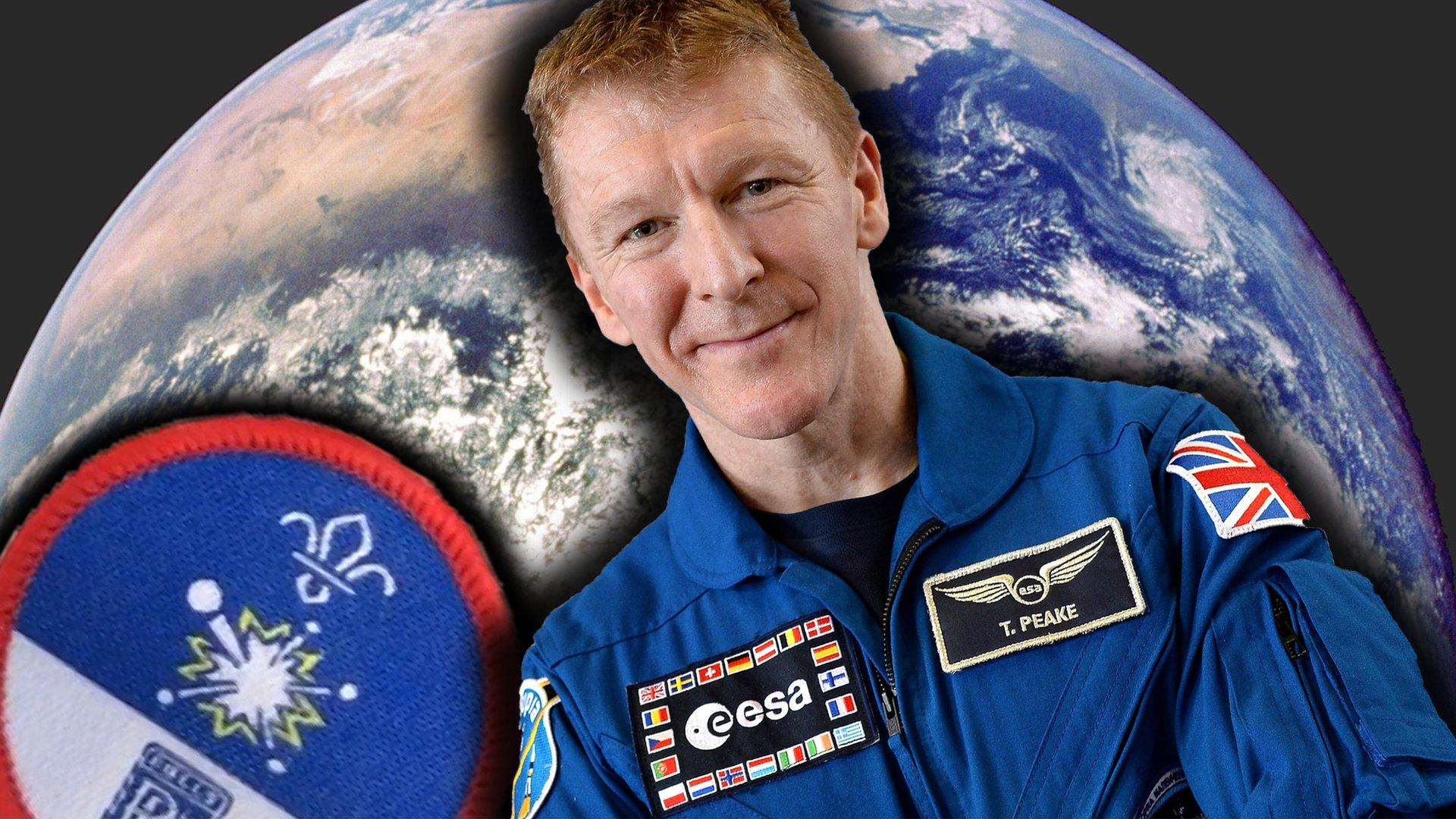Scouts launch first-ever money skills badge for Beavers and Cubs
- Published
- comments
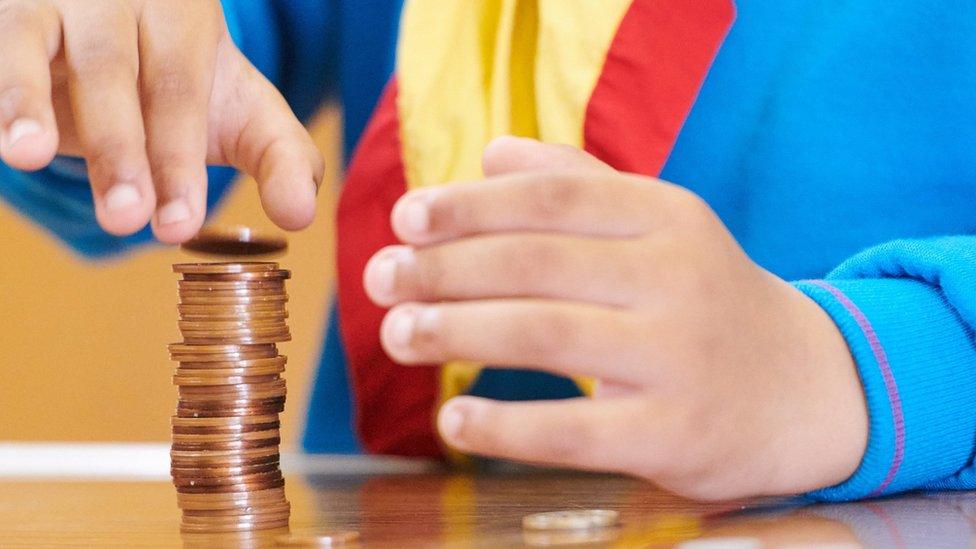
The Scout Association has launched a new badge to help over 200,000 boys and girls build important money skills for the future.
The Money Skills Activity Badge, developed with the bank HSBC UK, will be available for Beaver and Cub Scouts aged 6 to 10 to earn.
It comes after more than half of children aged 6 to 10 say they don't understand money, according to a 2020 survey by Censuswide.
The new Badge was developed after speaking to young people, parents and the financial educational charity Young Money.
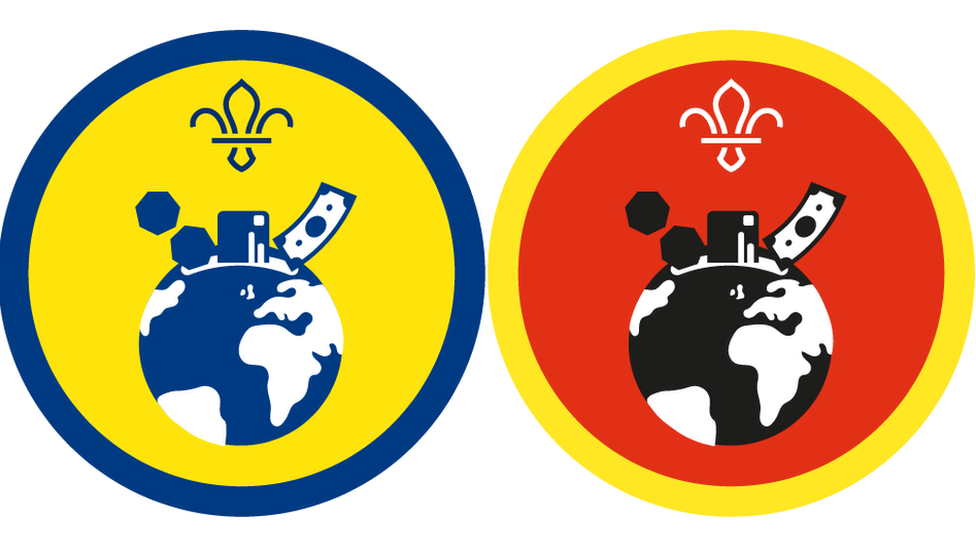
The new Beavers (pictured left) and Cubs (pictured right) Money Skills Activity badges
With contactless, digital and mobile banking growing in popularity, young people are using physical money such as notes and coins less.
This, the Scout Association says, can make it even harder to build their financial confidence.
Research by Money Advice Service also tells us that people develop money-spending habits by the age of 7.
The badge aims to build on the abilities young people already have to boost their confidence in making decisions about money.
The new Money Skills Activity Badge will help young people in developing life-long financial skills in a way that only Scouts can - with Beaver and Cub Scouts building confidence and understanding of money in a fun, hands-on and supportive environment.
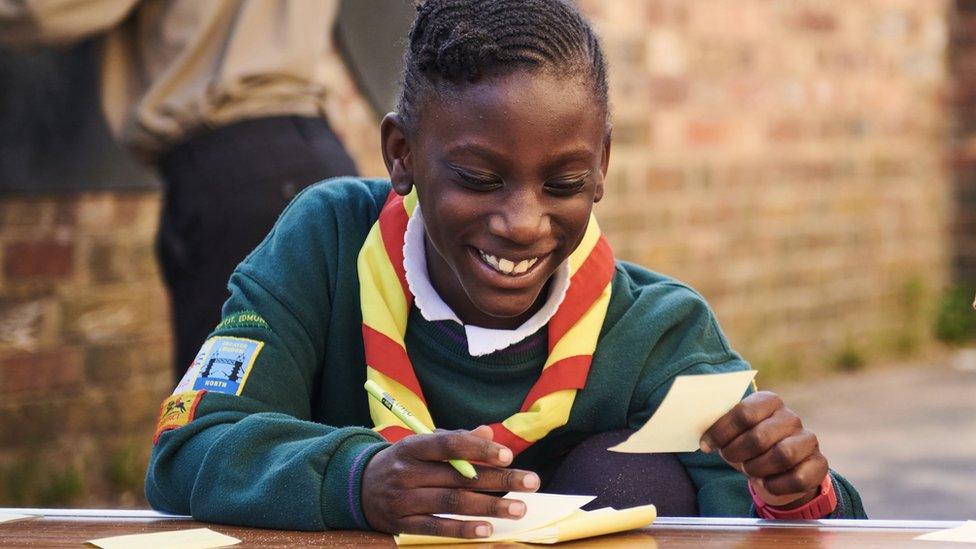
The new Badge will also help Scouts understand how their financial choices affect others as well as support those who struggle with counting and numbers.
This means that those young people who are still getting to grips with maths can still enjoy earning the Money Skills Activity Badge.
Scouts can take part in 20 new activities to earn the new Badge, including:
Value menus: Beavers take part in a series of activities designed to help them budget for a camp meal. This can help them think about where the money might make a positive impact when they buy their food, e.g. learning about fair trade items or locally sourced food.
Pack your bags: Beavers plan to take a bag on a hike and choose what items they need to take with them. Once they have completed the activity they are asked to explain why they chose particular things. This leads to a discussion about the difference between needs and wants, and how that relates to what they spend their money on.
- Published30 October 2020
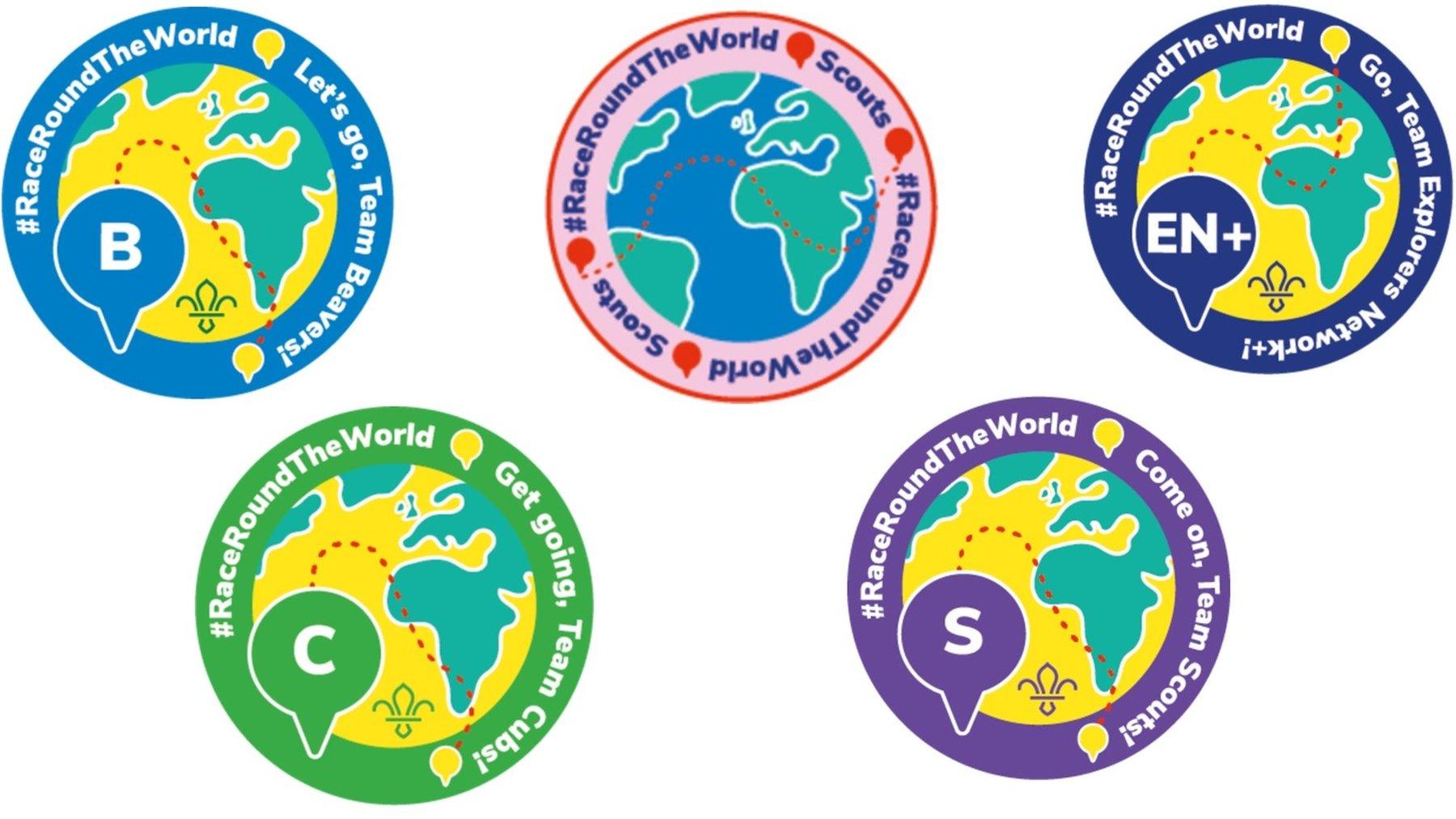
- Published2 August 2019
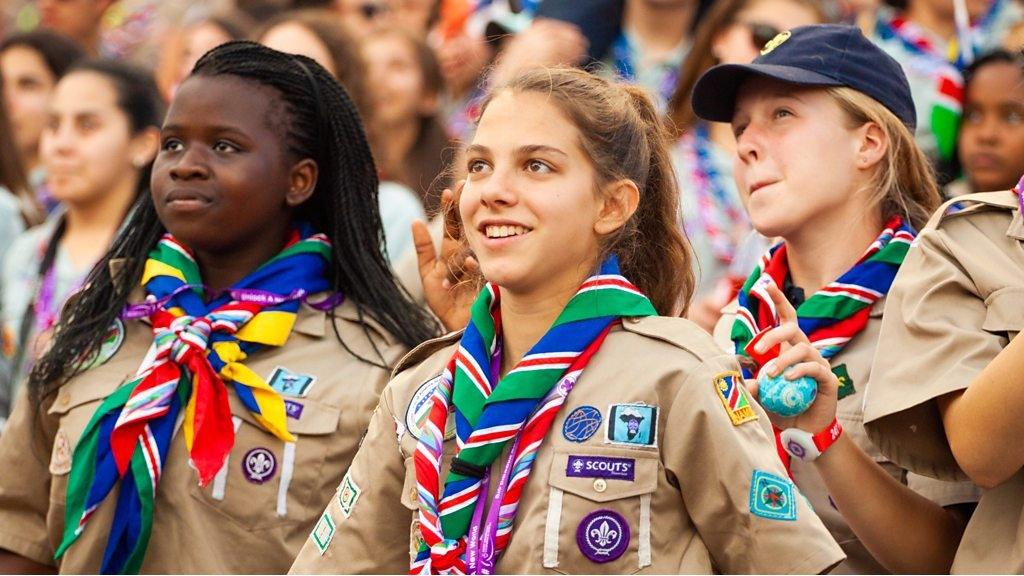
- Published1 April 2019
